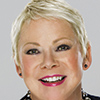In the wake of the pandemic, new challenges as well as new opportunities have arisen for women, and many new lessons have been learned. To honor Women’s History Month, we talked to some of the industry’s top female thought leaders to gauge the current state of women in real estate, including how far we’ve come, and how much progress remains to be made.
 Candace Adams
Candace Adams
President & CEO
Berkshire Hathaway HomeServices New England/Westchester/New York/
Hudson Valley Properties

Helen Hanna Casey
President & CEO
Howard Hanna Real Estate Services
 Sherry Chris
Sherry Chris
President & CEO
Realogy Expansion Brands

Lacey Conway
CEO
Latter & Blum
 Bess Freedman
Bess Freedman
CEO
Brown Harris Stevens
 Kymber Menkiti
Kymber Menkiti
Regional Director, Keller Williams;
President, Keller Williams Capital Properties
 Teresa Palacios Smith
Teresa Palacios Smith
Chief Diversity, Equity & Inclusion Officer
HomeServices of America
 Desiree Patno
Desiree Patno
CEO
NAWRB/Women in the Housing & Real Estate Ecosystem
 Jeanette Schneider
Jeanette Schneider
President
RE/MAX of Southeastern Michigan
 Michael Saunders
Michael Saunders
Founder & CEO
Michael Saunders & Company
 Sue Yannaccone
Sue Yannaccone
President & CEO
Realogy Franchise Group
What new challenges have women in real estate faced since the onset of the pandemic?
Teresa Palacios Smith: According to a McKinsey study, the COVID-19 pandemic heightened the large and small inequalities—both at work and at home—that women face daily. This was true for women in real estate as they now had the added financial and emotional stress, along with the uncertainty of what the future held. Women took on the primary role of managing home life and taking care of other family members while operating their real estate business.
Women had to also adapt to a new way of doing business. From learning new technology, conducting virtual open houses, inspections and closings to keeping updated on government and institutional programs, combined with the emotional toll of not being able to visit relatives, parents and grandparents, additional challenges were created for women in all facets of business.
Michael Saunders: The pandemic has had long-term repercussions on women, who were disproportionately affected. Not only did women have to be wage-earners, they had to handle childcare and remote schooling. I think women took on the psychological ownership of the impact of the pandemic on the family. I don’t think any of us are unscarred by the pandemic. We have carried it with us.
Sue Yannaccone: Needless to say, every professional needed to adapt to the initial jolt of remote work in 2020, balancing both their professional goals and personal wellbeing. But, the reality remains that women disproportionately juggle homelife responsibilities, and that dynamic was exacerbated by the shift to work-from-home. Far too often, women assume the daily household duties or are expected to be the primary caregivers for their children or elders, all while tending to the demands of the workplace. We have a long way to go in dismantling the structural and cultural practices that are at the core of this inequity, but women in real estate stood at the forefront of a historic year for the real estate market, in which we witnessed numerous record-breaking efforts from women brokers, agents and leaders.
Sherry Chris: The pandemic really brought to the forefront what it’s like for working women with children. Women with children faced the challenge of navigating childcare and virtual school while adapting their work routines and responsibilities to ensure continuity with clients, all while adhering to safety guidelines. In addition, women had to find ways to stay connected and relevant to their spheres, which took tremendous time and energy, coupled with the overall stress and anxiety of living in a pandemic. I would also say that in some cases, women had to take a back seat and put their careers on hold to care for their children.
Bess Freedman: A lot of women lost their jobs because they couldn’t focus on everything. They pulled themselves out of the workforce to support their children’s mental health and academics, to shoulder most of the burden of unpaid work that men never do. During the pandemic, so many women had to take their focus off of work and career. Women got hurt so much more than men during the pandemic.
Despite the challenges, have pandemic times opened up new opportunities for women in real estate?
Helen Hanna Casey: Absolutely! This has just been amazing, what we have learned and mastered. The opportunities that were available to learn and grow were greater during the pandemic than any other time we have experienced. Women seized the moment! We had more of our REALTORS® engaged in Hanna University, Martech Training and general learning experiences. Women relied on each other, which they have always done, but even more so during the pandemic. Today, as a result, they are better equipped to handle the needs of everyone around them, but their skill sets in social media, digital marketing and virtual open houses have catapulted everyone so far beyond what any of us could have imagined our capabilities even being.
Candace Adams: The pandemic has caused extreme stress and anxiety, and women tend to be more emotionally intelligent and caregiving. Those qualities became critical in leadership and have opened pathways for women to advance in their industries, providing a more balanced work environment.
Jeanette Schneider: Women have been able to grow their production as an individual or by growing a team. The pandemic has many women looking for career opportunities that are flexible. I have seen women who have been in car sales or teaching entering real estate as a career, and they have skills that can transfer very nicely into the real estate industry. We have seen women take on broker and ownership roles over the past couple of years or expand their business through mergers with other companies. Women have also found or expanded their voice in real estate—and by this, I mean embracing video to communicate and engage with past clients, sphere of influence and others.
Desiree Patno: There has been a new sense of awareness to help dig deeper to understand some of the issues that have plagued our industry for decades. Women are stepping up and creating more startup companies with alternative ways to capitalize on the real estate market. From investing, creative management services and niche real estate verticals, including the metaverse, women are turning the dial outside of the normal traditional marketplace.
Lacey Conway: COVID made us all take a hard look at career and health—some checked out and others dug in. There is an awareness of the need for women in real estate and leadership, and a big opportunity for women to step up. I also think shifts in workplace flexibility and more control over schedules due to remote work have been challenges, but created opportunities for many.
Kymber Menkiti: In some ways, women have more advantages because we’ve been balancing and juggling well before the pandemic. So women have risen to the occasion because we already had the ability to manage under stress and pressure. I’ve certainly seen women rise to the occasion and really lead with feminine leadership. We need this, especially in times of difficulty and uncertainty. This has given women a competitive opportunity. The ability to be remote allowed the ability to flex into roles that maybe would’ve been harder to attain. In the last 24 months, less networking happened on the golf course, and this allowed women to be more present in networking opportunities.
Sherry Chris: Many women joined real estate because of a career change precipitated by COVID. Now they are firmly in control of their career and earnings, working in an environment that offers work-life balance flexibility. Today, the National Association of REALTORS® (NAR) reports that 65% of real estate professionals are women, and 60% of brokers are women. We’ve added a number of women-owned companies to our networks this past year, many of them former team leaders who took the next step in starting a brokerage.
What are some of the most impressive advancements for women in the industry that you’ve witnessed over the past couple of years?
Bess Freedman: I would love to pretend that I thought there were advancements. I don’t believe that there have been. As I look around our industry, I see that the owners of most companies are all men. I’m CEO, but I work for a chairman and owner who are men. There are no female developers. VC and hedge funds are all men. Women don’t have a big enough stake in real estate. There are incredible opportunities for growth for women—we have to keep pushing. Men need to open the door and encourage some new blood in that environment. We need men to coach them along, to mentor them.
Michael Saunders: There hasn’t been enough advancement for women in the industry. If you look at national franchises and state associations, it’s predominantly still men at the top. And more than ever, women want to control their professional and financial destiny. I think that women naturally have the skills that are paramount to being successful. We have a long way to go and much to do, but I do think that everyone from NAR to state organizations to LeadingRE and Luxury Portfolio have focused on tracks for leadership development for women.
Teresa Palacios Smith: With the backdrop of a global pandemic, a record number of women within the HomeServices family of companies were elevated to top positions. Women have taken on more leadership roles within the real estate industry. There have only been seven women who have led the National Association of REALTORS® in its 115-year history, and this past November, Leslie Rouda Smith took the helm as president for the largest trade organization in the world. Leslie explained during a recent conversation on the Facebook series “Women Who Lead” that for the first time in the history of NAR, there are more women than men on the leadership team.
Candace Adams: We’ve seen a heightened sensitivity to equality in general in the last few years, and women have been among the beneficiaries of the light shining on diversity and inclusion. Women represent approximately 67% of the country’s real estate agents; however, leadership is not representative of that. In the past, men have mainly dominated leadership roles, but in the last few years, we have seen significant improvement in the opportunities available to women, and more and more are sitting in the C-suites.
Helen Hanna Casey: Personally, I think real estate sales, brokerage, residential, commercial, mortgage banking, insurance and title have always been ripe for women successes. For over 70 years, women have helped shape our industry. As the industry grows, we need more bright, multi-talented women to open new doors to new potential for all of us. At Howard Hanna, we believe we have created opportunities for women since our founding. Certainly, we have seen the number of women executives growing year after year. They are CEOs, COOs, CFOs, CLOs, CMOs, CGROs and presidents, and that is just at Howard Hanna. With the baby boomer generation aging and retiring, there will be even more opportunities for women leaders, opportunities for the best and the brightest that want to win!
Kymber Menkiti: I feel like we have a lot of work to do. One of the things I’m seeing more, is men calling attention to the need for women and diversity in general in their leadership. At the end of the day, it’s going to be up to the male-dominated leadership in our industry. You have to change the people who are in front of you. If you don’t change who’s in front of you, we’ll continue that constant cycle. I became the first Black regional president for Keller Williams. We had White guys there for a long time. They had to look up and make sure they were drawing from a diverse pool—that was their intentionality. They have to be more intentional about tapping the shoulders of women and saying, ‘hey, are you interested?’ The other issue is being able to find other women leaders as mentors. It’s a pretty empty path in our industry.
Lacey Conway: Impressive women in real estate are not something new, although I am delighted that they are being recognized more and more. I was so pleased to see Sue Yannaccone take on the role of CEO for Realogy Franchise Group and Christy Budnick named CEO of Berkshire Hathaway HomeServices—both big roles and big promotions. I also like to witness women like Michael Saunders and Helen Hanna Casey be recognized for their major roles, but acknowledging their longevity, contributions and continued success in this business.
How are you addressing diversity in your firm? What advice would you share with other real estate leaders for addressing diversity issues?
Sue Yannaccone: What Moves Her, an effort that I launched in 2020 to support women’s paths to leadership in real estate, has reached over 5,000 women in the industry through its programming. Ascend, our educational course for training our next generation of broker/owners, has more than doubled its participation from aspiring minority leaders. Meanwhile, our Inclusive Ownership Program has onboarded dozens of new diverse franchise owners in recent years, providing the support infrastructure, mentorship and financial incentives to empower more minority entrepreneurs in our industry.
My advice to other leaders in our industry who are seeking to address diversity issues: Ensure that your efforts are designed to make a genuine impact. The unfortunate, under-discussed aspect of the business world’s newfound focus on diversity is that it often results in symbolic gestures to “check a box.” We can’t solve the myriad injustices across racial, ethnic and gender lines with a broad-brush approach; your solutions should be targeted and prescriptive.
Jeanette Schneider: You can learn a lot from being willing to have a conversation and learn from others. We don’t all have the same life experiences, and being willing to really listen to other points of view can change your approach to things moving forward. RE/MAX has been a sponsor of the Asian Real Estate Association of America (AREAA) for five years, and in 2021, we participated in the Diversity and Fair Housing Summit that was part of the AREAA event. RE/MAX also led the National Association of Hispanic Real Estate Professionals’ (NAHREP) list of top Latino agents. We look for opportunities to be part of organizations that support diversity.
Kymber Menkiti: Keller Williams added a head of Diversity, Equity and Inclusion, Julia Lashay Israel. They were able to identify a strong female leader of color who was in the agent base and has now come to be in the C-suite. Also, our free real estate school, which was birthed out of our social equity taskforce, was a way to level the playing field for women and people of color. I also founded an organization called Her Best Life, to amplify the voice of women in leadership in business. We need to come together and create these tribes where we feel connected and pour into other women. I live by the mantra, “lift while you climb.”
Helen Hanna Casey: We have always been involved in community outreach to diverse populations. I think it is important that women themselves take leadership roles within those community organizations as examples to their companies. Our COO, Annie Hanna Cestra, has chaired the Urban League of Pittsburgh and been its Chair of Development for many years. We as a company are involved in the national Dress for Success campaign, which provides much more than clothes. On the educational forefront, it is imperative that we offer training and education on diversity and inclusion to help overcome unconscious bias within our daily lives. Education is also important to our communities, so we have funded scholarships through the educational promise, urban leagues, University of Pittsburgh and John Carroll University, in addition to funding women’s colleges in our markets.
Teresa Palacios Smith: At HomeServices, we are committed to a robust education plan for our leaders, employees and network agents, which includes training on implicit bias, inclusive language and NAR’s (seven-hour) At Home with Diversity Course. I am proud to say that, beginning with our CEO, Gino Blefari, 100% of the HomeServices-owned companies’ leadership participated in all our seminars and classes.
We also have continued partnerships with national organizations such as AREAA, NAHREP and NAREB. We are committed to bringing more women into leadership roles, supporting the work of organizations like NAWRB, Professional Women in Building (NAHB-PWB) and the Women’s Council of REALTORS®, along with a Facebook and podcast series “Women Who Lead.” We are also proud to be a founding sponsor of the LGBTQ+ Real Estate Alliance and work closely to expand our Veteran workforce by partnering with VAREP.
What advice would you share with women aspiring to advance their careers in the real estate industry?
Candace Adams: My advice to anyone wanting to advance their careers in real estate is to first be knowledgeable, educated and an expert in the industry. Understanding the many facets of the business, from sales to operations, can help foundation a career for growth. Be yourself, be confident and actively search for new opportunities.
Michael Saunders: Be bold! Be curious! Have a strong set of values, stay focused and be really determined. Don’t let anyone deter you from your goals. Core values are critical and should be a guiding light of every woman. Don’t be afraid to take risks.
Bess Freedman: Most importantly for women, I encourage them to shift their mindset. Instead of playing not to lose, play to win. Understand your value. So often we hear women say things like, “I was afraid to ask for a raise or a promotion.” It’s intimidating. But be clear about what your worth is, and know what you want. Men do it every day. Women need to stop tip-toeing and stop saying sorry.
Lacey Conway: Go for it, and make it your own. It’s okay to grow into your role. Plenty of studies have shown that men tend to run after opportunities when they open up, whether they’re qualified or not… whereas women tend to feel like they aren’t qualified even when they clearly are. When it comes to pursuing a career in real estate, I feel like women could do themselves a favor by reaching higher even when they might not feel ready. When we wait and wait and wait, we fall into the mindset that we’re not “yet” qualified, that we need just one more year of experience, one more leadership class, etc. These are just ways we trick ourselves into playing small.
Sherry Chris: Women with aspirations of leadership should strategically network to create an extended team of counselors and advisors that can be called upon at any time. It’s also essential to understand you can’t be a superhero—for women with competing responsibilities, you have to compartmentalize. Being able to maximize and optimize time spent on work and other aspects of life lets you be fully present at all times.
Sue Yannaccone: The path to leadership isn’t the same for everyone, and it’s never a straight line. Your aspirations should start with goals for your own personal growth, like accepting new challenges and learning more about your industry, rather than an end result, like becoming CEO or achieving a certain salary. With the benefit of hindsight, I can see that I was unknowingly defining my path to leadership the entire time through the ways in which I accepted new opportunities with a focus on immersing myself in the work. I allowed myself to adapt my passion and leadership style in real-time, rather than predefining an outcome.
Helen Hanna Casey: Learn. Try new things. Ask questions. Seek mentors, both men and women, and remember that there are opportunities that you may not realize exist unless you look. In today’s workforce, there are specialties in every form of what we do. Develop and strengthen your own talents, and know what they are. As REALTORS®, we are the greatest negotiators in the world, yet writers and academics indicate that women do not know how to ask for the order, negotiate or brag about themselves. I do not think they have studied women REALTORS®! Our future leaders are among us, they just need to make themselves known.
Desiree Patno: Follow your heart, passion and drive, never give up! If you have conviction, it will happen.
Teresa Palacios Smith: Seek areas where you can expand your knowledge of the business, focus on your strengths and sharpen areas where you may not feel as comfortable. Be open to constructive criticism, and take the time to improve those areas so that you develop and expand your capabilities. When the opportunity arises for you to step into a new role where you can advance and learn a new area, or leap into a new venture, go for it, even if you are scared to death.
Jeanette Schneider: Be present and use your voice. Show up to meetings and events where you get to meet people and expand your network and make it a point to engage in conversation with both people you know and those you don’t yet know. Don’t be afraid to be heard at these meetings. Find a mentor who can share their experience and provide some guidance.
Kymber Menkiti: Every time you state what you want, don’t put a ceiling on yourself. Name what you want. You have to be very comfortable being uncomfortable. Women are much more calculated and need to know they’ll succeed before they jump in. You need to step outside of that and just jump in.
 Maria Patterson is RISMedia’s executive editor. Email her with your real estate news ideas, maria@rismedia.com.
Maria Patterson is RISMedia’s executive editor. Email her with your real estate news ideas, maria@rismedia.com.












